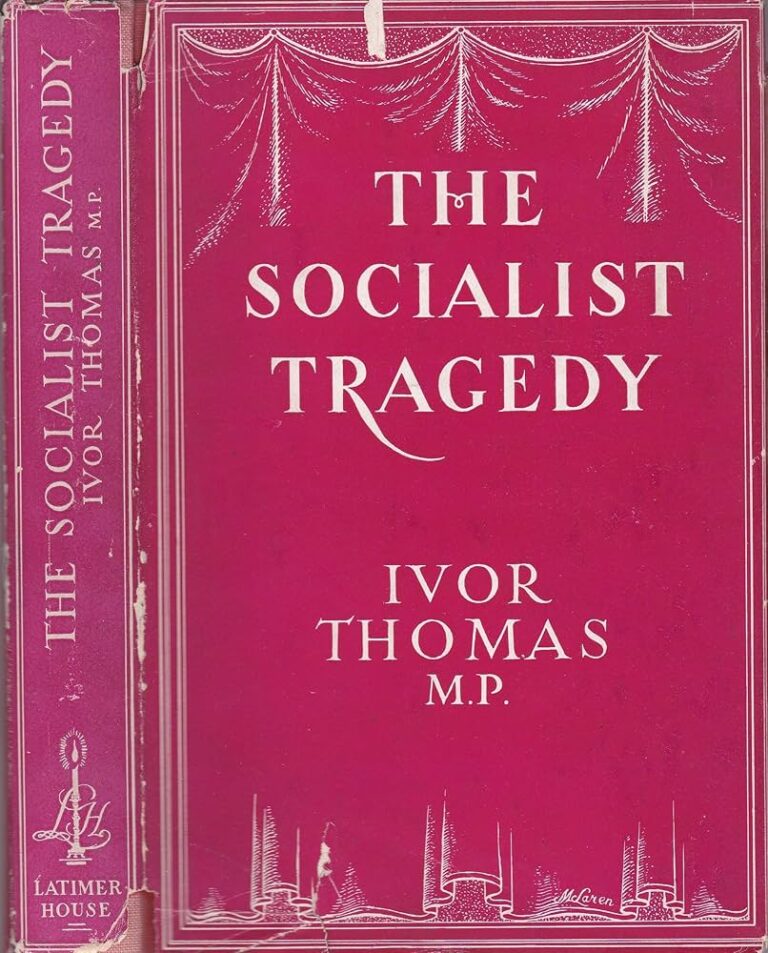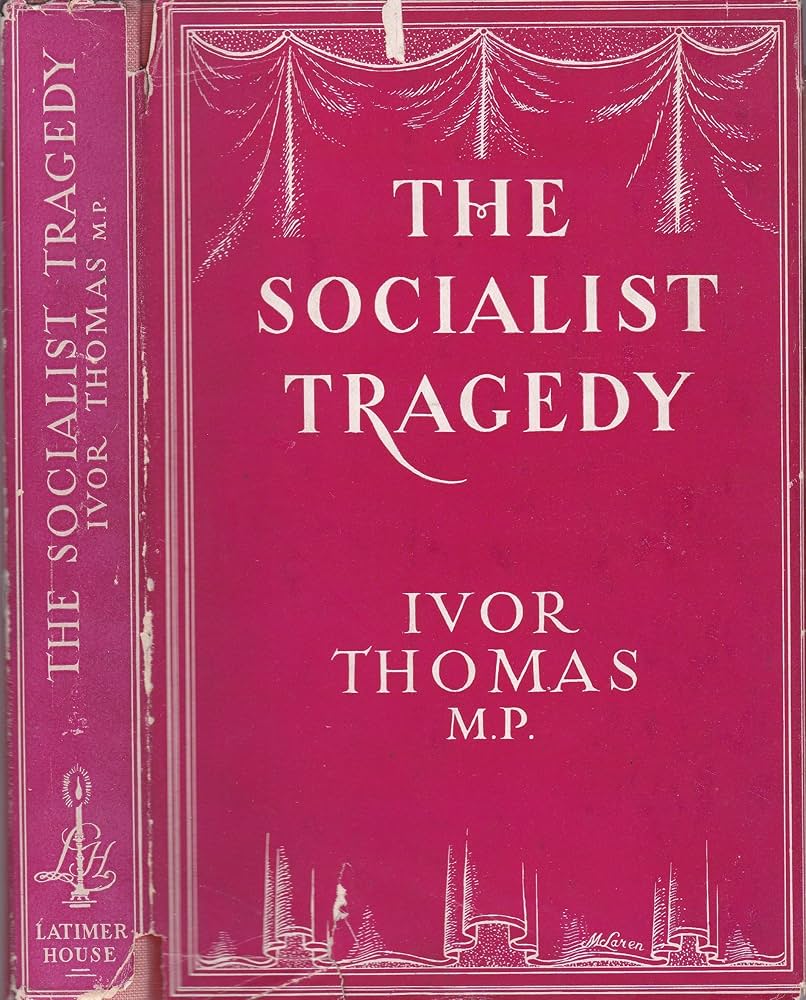Ivor Bulmer-Thomas, The Socialist Tragedy (1949)
The 1949 federal election was arguably the most ideological poll in Australian political history, pitting two vastly contrasting visions for the post war nation against each other. For this same reason, it was equally one of Australia’s most consequential elections, and one which drew an unusually large number of international observers.
The most interested of these observers were the people of Great Britain, who had themselves opted for a Chifley-style socialist program in ousting Churchill for Clement Attlee in 1945. Such were the economic ramifications apparent within a few short years that many were starting to regret that decision – even some Labour MPs themselves. Ivor Bulmer-Thomas had been elected as the Labour Member for Keighley in 1945, and such were his demonstrated talents that he quickly rose to be appointed a Parliamentary Secretary for Civil Aviation, and later Under Secretary for the Colonies in the Attlee Government.
As Parliamentary Secretary, Thomas was charged with overseeing a Bill to nationalise Britain’s airlines – something which Chifley had tried in Australia but which was ultimately declared unconstitutional. But it was when Attlee moved to nationalise the steel industry that Thomas felt a line had been crossed. After being ousted from the ministry for his critical views, Thomas crossed the floor to join the Conservative Party, arguing that such was the ever-increasing power of the state in Britain, that there was effectively no difference between Labour’s ‘socialism’ and outright communism.
In The Socialist Tragedy Thomas sought to outline why he had become so disillusioned, and unpack the inherent flaws of socialism which had emerged wherever and whenever it had been trialed; even the Incan empire. Thomas argued that communal ownership was the default state of human societies, and that it was part of the progress of advancing to true civilisation to embrace private property ownership and the economic potential it could unleash. More than merely a regression towards primitivism, the new combination of ancient collectivism with modern bureaucratic efficiency posed a unprecedented and sinister threat:
‘The state in practice, as we have seen, is capable of tyranny and oppression and brutality on a scale which would be impossible for a private person, and from which all except the most debased private persons would shrink. The power of the state is vastly greater than the power of the mightiest private owners of property; and men will commit cruelties and atrocities in the name of the state which they would be too ashamed to commit in their private capacity. We must be chary, therefore, of assuming that we shall cure any misuse of the power inherent in the private ownership of property by concentrating all ownership of the means of production, distribution, and exchange in the state.’
Thomas also argued, in a similar fashion to Menzies, that the planned economy was not responsive to the wants and needs of the people. And also that reward for effort was the essential driving force behind human progress:
‘The prime fact of human nature which the wise statesman must take into account is that men will exert themselves for their own benefit, or for that of their families, regarded as an extension of themselves, as they will exert themselves for no one else; and, in particular, men are not prepared to work for the state or for any other collectivity as they will work for themselves or for their families…If it is made impossible for him to advance himself or his family by his exertions, the average man will cease to exert himself. No motive comparable in its effects…has yet been known in the history of the human race.’
Thomas’s background suggests that he was always a liberal at heart, as before entering politics he had worked as a researcher in William Gladstone’s Hawarden estate. For these reasons, he was naturally attracted to Menzies and his framing of the political contest as a clash between the freedom offered by classical liberalism and the servitude of socialism.
When Menzies won the 1949 contest, Thomas took great comfort. Sending the new prime minister a copy of his book, with the inscription:
‘To the Rt. Hon. Robert G. Menzies, whose great victory has given us new hope in England. From Ivor Thomas, Christmas 1949’.
You might also like...
Sign up to our newsletter
Sign up for our monthly newsletter to hear the latest news and receive information about upcoming events.



